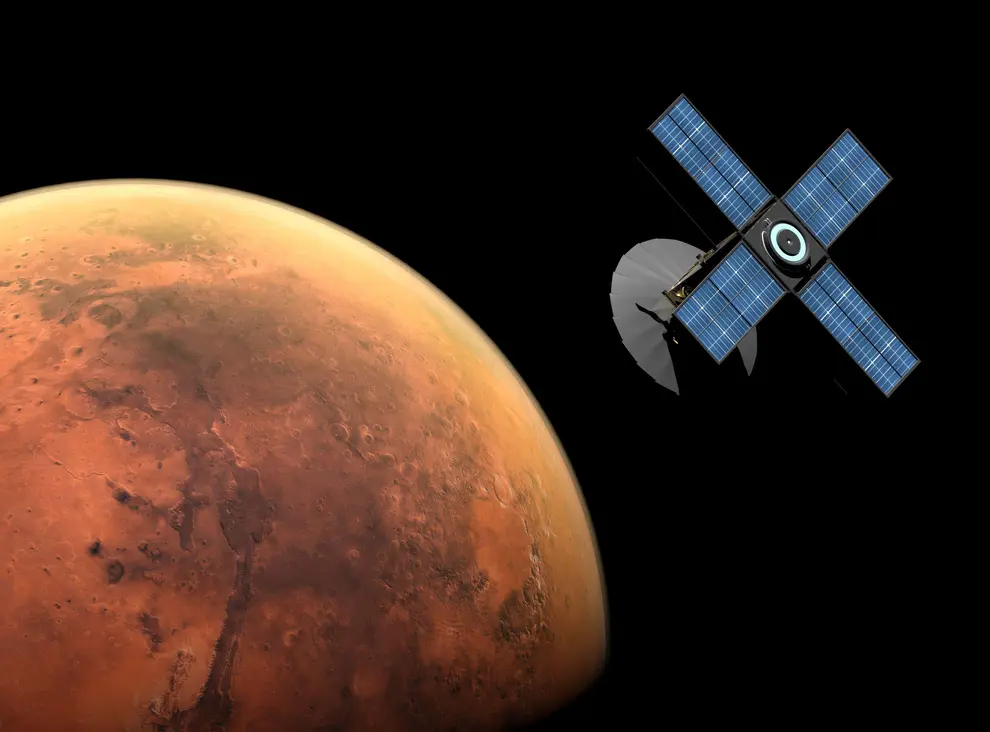China’s Mars Rover Finds Hints of Catastrophic Floods
In an analysis published in the journal Nature, China's "Zhurong" rover, which landed on Mars in 2021, may have uncovered evidence of two significant flood events from the planet's deep history.

Facts
- In an analysis published in the journal Nature, China's "Zhurong" rover, which landed on Mars in 2021, may have uncovered evidence of two significant flood events from the planet's deep history.
- The area of focus, known as "Utopia Planitia," consists of large plains in the planet's northern hemisphere. Zhurong used radar to peer below the surface and found geological evidence for large-scale floods that moved sediments around 3B years ago.
- Previous research suggested approximately 200 lakes were filled with water that, when breached, initiated catastrophic flooding that created features like canyons in the Martian landscape. Similar geologic processes have also been important in Earth's history, including during the last ice age.
- Zhurong's radar readings didn't detect any current water below the Martian surface; however, the results could prove helpful in determining if water — and potentially life — existed on the Red Planet billions of years ago. The study's authors cautioned that the sediment might also be the result of volcanic activity.
- A recent study led by the University of Cambridge supports the analysis. It found evidence suggesting liquid water on Mars using laser-altimeter measurements to identify changes in the height of ice caps — the first time evidence of water was found using data that didn't come from a radar.
- Other recent studies have also hinted at the possibility of plentiful water below the surfaces of both Mars and Venus, which may hint that both planets had primordial oceans and even the possibility of life.
Sources: Nature, Bloomberg, Space, Futurism, Nasa, and Room.
Narratives
- Narrative A, as provided by The Independent. The studies on Mars continue to roll in, and it's looking resoundingly like the Red Planet is wetter than it appears. Even if the water is below the surface today, eons ago. oceans could have harbored life which has implications for understanding our place in the Cosmos. These are exciting times to be alive.
- Narrative B, as provided by LA Times. It's great that we are learning about catastrophic floods on Mars, but we need to learn much more about climate-catalyzed issues on Earth. There are more detailed maps of Mars and Venus than there are of our planet's oceans — which hold the key to understanding our warming world. It's essential to understand the nooks and crannies of Planet Earth before we do for any other planet.






